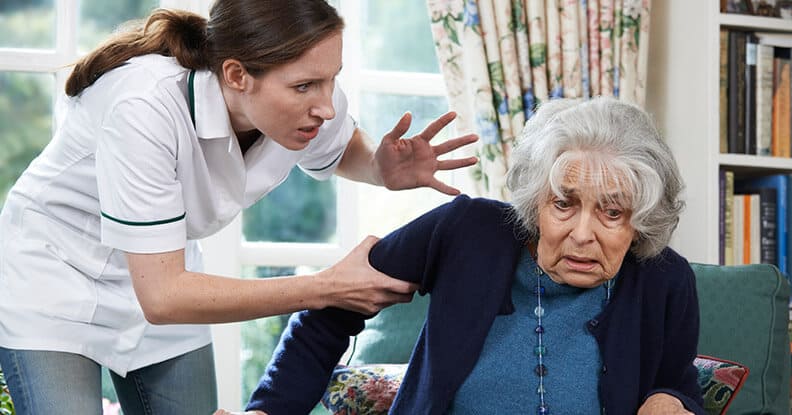Have you ever faced the distressing issue of nursing home abuse, where vulnerable seniors suffer mistreatment and exploitation in elder care facilities? Drawing from our experience, we understand the importance of seeking justice for these victims and their families. In this comprehensive guide, we will delve into the alarming reality of nursing home abuse, ways to identify the signs, and the critical role expert legal support plays in advocating for the rights of those affected.
Understanding Nursing Home Abuse
Nursing home abuse is a pressing concern in our society, affecting countless seniors residing in care facilities. It encompasses various forms of mistreatment, including physical, emotional, financial, and neglectful acts. Seniors may experience abuse from staff, other residents, or even visitors.
Definition and Types of Abuse
- Physical Abuse: This involves any form of violence, such as hitting, slapping, or restraining residents against their will.
- Emotional Abuse: Verbal insults, threats, and isolation fall under emotional abuse, causing significant psychological harm.
- Financial Exploitation: Unscrupulous individuals may manipulate or steal from vulnerable seniors, leaving them financially devastated.
- Neglect: Failing to provide adequate care, including food, medication, and personal hygiene, constitutes neglect.
Prevalence and Impact of Nursing Home Abuse
Our findings show that nursing home abuse is more prevalent than we would like to believe. The elderly population’s vulnerability makes them easy targets, and many cases go unreported. Victims of abuse may suffer from physical injuries, emotional trauma, and a decline in overall well-being. It is crucial to address this issue promptly and seek justice for those affected.
Identifying the Signs of Nursing Home Abuse
Recognizing the signs of nursing home abuse is essential to protect vulnerable seniors from harm. Often, victims may be unable to voice their suffering, making it crucial for family members and caregivers to be vigilant.
Physical Indicators
- Unexplained injuries such as bruises, cuts, or fractures.
- Sudden changes in weight or appearance.
- Signs of restraint, such as rope marks on wrists.
Emotional and Behavioral Signs
- Unexplained withdrawal or depression.
- Fear or unease around specific staff or residents.
- Agitation or sudden changes in mood.
Seeking Justice for Nursing Home Abuse
When nursing home abuse occurs, it is imperative to take action and seek justice for the victims. Legal options are available to hold the responsible parties accountable for their actions and secure compensation for the harm caused.
Legal Options for Victims and Their Families
Victims and their families have the right to pursue legal action against the perpetrators and the facility where the abuse occurred. Filing a lawsuit can help not only in seeking compensation but also in preventing similar incidents in the future.
Expert Legal Support for Victims
To navigate the complexities of a nursing home abuse case, it is essential to seek expert legal support. Reputable attorneys specializing in elder abuse cases can provide compassionate guidance and advocate for the best interests of the victim.
How to Choose a Nursing Home Abuse Attorney
Selecting the right attorney is crucial to building a strong case and achieving a favorable outcome. When seeking legal representation for nursing home abuse cases, consider the following factors:
Factors to Consider
- Experience in handling nursing home abuse cases.
- Track record of successful settlements or verdicts.
- Commitment to advocating for the rights of the elderly.
Questions to Ask During the Consultation
- How will you approach my loved one’s case?
- What compensation can we pursue for the damages suffered?
- How long do you anticipate the legal process to take?
The Legal Process for Nursing Home Abuse Cases
Taking legal action for nursing home abuse involves several important steps. A well-prepared approach is essential to ensure a successful resolution.
Gathering Evidence and Building a Strong Case
An expert attorney will thoroughly investigate the case, collecting evidence, witness testimonies, and medical records to build a robust case.
Negotiation and Settlement vs. Trial
In many instances, cases are resolved through negotiation and settlement. However, if a fair resolution cannot be reached, the attorney will be prepared to take the case to trial.
Preventing Nursing Home Abuse
The best approach to nursing home abuse is prevention. By advocating for vulnerable seniors and promoting better practices in care facilities, we can work towards reducing the occurrence of abuse.
Advocacy for Vulnerable Seniors
Supporting organizations that advocate for the rights and well-being of elderly individuals can make a significant difference. These groups work to implement changes in policies and regulations to protect seniors from abuse.
Promoting Better Nursing Home Practices
Collaborating with nursing homes to improve their caregiving standards and staff training can contribute to a safer and more compassionate environment for residents.
Seeking justice for nursing home abuse is a critical endeavor that requires compassion, expertise, and determination. By understanding the signs of abuse, choosing expert legal support, and advocating for preventative measures, we can work together to protect our elderly population from harm. Remember, every action we take matters, and by standing up for those who cannot stand up for themselves, we can make a meaningful impact in the lives of vulnerable seniors.
For professional legal assistance and expert guidance in nursing home abuse cases, consider reaching out to Union Law Firm here: https://www.unionlawfirm.com/new-york-injury-attorney/nursing-home-abuse/. Their experienced team of attorneys is dedicated to championing the rights of seniors and their families, ensuring that justice is served for victims of nursing home abuse.

